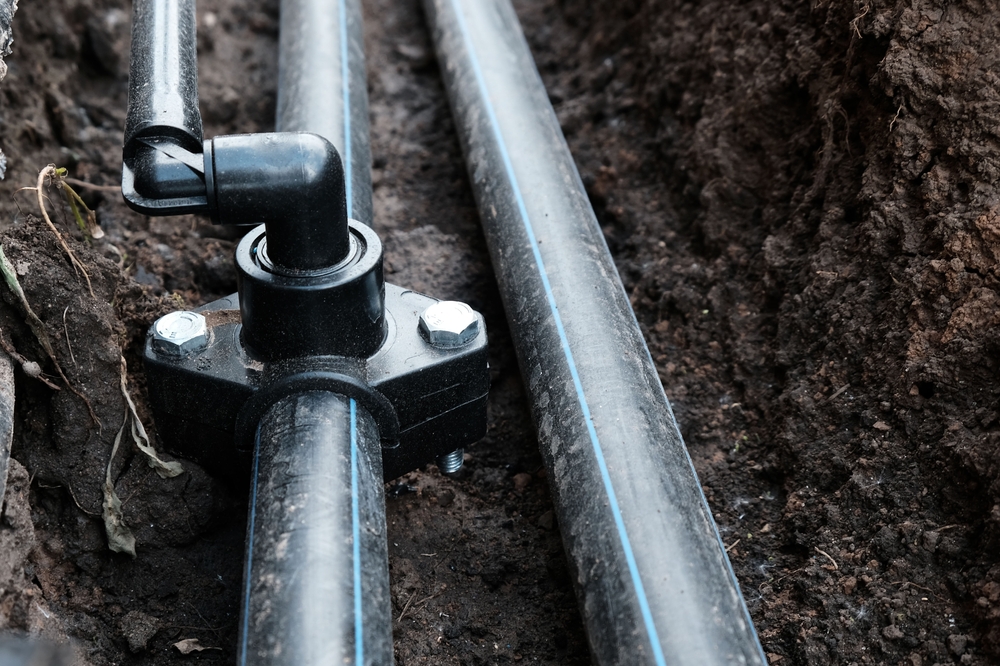On a sunny morning, a farmer looks over his field, proud of the healthy crops growing in neat rows. The early sun shines on the leaves, indicating the start of a good day. As he inspects his irrigation system, he feels thankful for the HDPE pipes and fittings under the soil. These strong and smooth pipes have made watering his crops much easier and more reliable. But why do so many farmers choose HDPE pipes and fittings for their irrigation systems? In this blog, we’ll discuss why they are the best options and how they help crops get the water they need.
Why Are HDPE Pipes Ideal for Irrigation Systems?
HDPE pipes are ideal for irrigation systems as they are strong, flexible, and corrosion-resistant. They handle high-water pressure well, which leads to efficient water distribution and a reduced risk of leakage.
Here are the reasons why HDPE pipes and fittings are suitable for irrigation systems:
- Durability: HDPE pipes and fittings withstand harsh environmental conditions and resist damage, which ensures long-term use in irrigation systems.
- Flexibility: They easily bend and adapt to different terrains, which makes installation in various agricultural settings straightforward.
- Corrosion Resistance: HDPE pipes resist chemical and soil corrosion, maintaining water quality and preventing pipe degradation over time.
- Leak-Free Joints: The fittings create secure, leak-free connections, reducing water waste and ensuring efficient irrigation.
- High Pressure Handling: HDPE pipes can manage high water pressure, essential for delivering water effectively across large irrigation areas.
What Are the Benefits of Using HDPE Pipes for Large-Scale Irrigation Projects?
Using HDPE pipes for large-scale irrigation projects offers several benefits:
- Longevity: HDPE pipes offer a durable solution, with a lifespan of over 50 years, reducing replacement and maintenance costs.
- Chemical Resistance: They withstand chemicals in soil and water, maintaining water quality for irrigation without degradation.
- Flexibility: HDPE pipes are flexible and can be easily installed in varying terrain and weather conditions.
- Cost-Effectiveness: Lower installation and maintenance costs compared to other materials due to durability and ease of handling.
- High Flow Capacity: Handles high water flow rates efficiently, ensuring consistent water supply across large irrigation areas.
How Do HDPE Pipes Enhance the Efficiency of Irrigation Systems?
HDPE pipes and fittings enhance the efficiency of irrigation systems. Their smooth internal surface reduces friction, which leads to a consistent and efficient flow of water. This reduces energy usage and pump wear, which leads to cost savings. HDPE pipes’ resistance to corrosion and chemicals ensures that they retain structural integrity over time, avoiding the need for frequent repairs or replacements. Also, its flexibility allows it to adapt to changing terrains and ground movements without sustaining harm, maintaining an ongoing source of water for crops. HDPE pipes increase the reliability and effectiveness of irrigation systems, which leads to higher crop yields and better resource management.
How Do HDPE Pipes Handle the Pressure of High-Flow Irrigation Systems?
HDPE pipes have been designed to endure the pressures of high-flow irrigation systems. Their great flexibility helps them to deal with high internal pressures without bursting or cracking. The flexibility of HDPE pipes helps them to absorb shocks and vibrations, which is important in high-pressure settings. Also, HDPE pipes contain seamless joints which reduce the possibility of leaks, which leads to regular and reliable water flow. HDPE pipes’ capacity to manage high-pressure situations makes them a reliable alternative for irrigation systems that require significant water flow to cover as big agricultural regions.
How Do HDPE Pipes Support Sustainable Agriculture Practices?
HDPE pipes enhance water efficiency and reduce environmental impact, also promoting sustainable agriculture methods. Their toughness and chemical resistance ensures a long lifespan, avoiding the need for frequent replacements and waste. The smooth internal surface of HDPE pipes decreases friction, which leads to lower energy consumption and higher water flow efficiency. This helps to save water and energy resources. Also, HDPE pipes are recyclable, which contributes to environmental initiatives. HDPE pipes help sustainable agriculture operations by improving irrigation efficiency and reducing environmental imprints.
How Do HDPE Pipes Compare to PVC Pipes in Irrigation Systems?
HDPE pipes offer several advantages over PVC pipes in irrigation systems:
- Durability: HDPE pipes are more durable than PVC pipes, as they can better withstand impact and harsh environmental conditions.
- Flexibility: HDPE pipes offer greater flexibility, which allows them to bend without breaking, which is useful for uneven terrains in irrigation systems.
- Installation: Installing HDPE pipes is easier and faster due to their lightweight nature and the ability to use longer sections, reducing the number of joints needed.
- Leak Resistance: HDPE pipes have fewer joints and use heat fusion to create leak-free connections, whereas PVC pipes often rely on solvent welding or mechanical joints that can be prone to leaks.
- Temperature Resistance: HDPE pipes perform better under varying temperature conditions, maintaining their integrity and performance, while PVC pipes can become brittle in cold temperatures and soften in high heat.
How Easy is it to Install HDPE Pipes in an Irrigation System?
Installing HDPE pipes in an irrigation system is simple due to their lightweight and flexible nature. The steps include:
- Plan the Layout: Map out the irrigation system layout, marking the paths for HDPE pipes to ensure efficient water distribution.
- Prepare the Trenches: Dig trenches according to the planned layout, ensuring they are deep and wide enough to accommodate the HDPE pipes.
- Lay the Pipes: Position the HDPE pipes in the trenches, aligning them properly to follow the planned paths.
- Connect the Fittings: Join the pipes using appropriate HDPE fittings, ensuring secure and leak-free connections.
- Cover and Test: Backfill the trenches with soil and conduct a thorough test to check for leaks and ensure the system operates efficiently.
What Are the Cleaning and Maintenance Tips for HDPE Pipes in Irrigation?
- Regular Flushing: Flush HDPE pipes periodically to remove sediment and debris that can accumulate and restrict water flow.
- Inspect for Damage: Conduct regular inspections to check for cracks, leaks, or signs of wear that may compromise pipe integrity.
- Use Proper Cleaning Solutions: Use gentle cleaning solutions and methods appropriate for HDPE to avoid damaging the pipes.
- Clear Blockages Promptly: Address any blockages promptly by clearing them to maintain uninterrupted water flow in the irrigation system.
- Monitor Water Quality: Monitor the quality of water flowing through HDPE pipes to ensure it meets irrigation standards and does not cause buildup or corrosion.
Leading the Way in Irrigation Solutions with Adamjee HDPE Pipes
Adamjee DuraBuilt is the leading flexible pipe manufacturer in Pakistan, especially in HDPE pipes that are well-suited for irrigation systems. Our HDPE pipes provide outstanding durability, flexibility, and corrosion resistance, which makes them excellent for efficiently transporting water over agricultural areas. Adamjee DuraBuilt’s commitment to innovation and quality ensures that our pipes are above the strict standards of current irrigation practices, providing reliable options that improve crop yields and sustainability. Adamjee DuraBuilt provides outstanding HDPE plumbing solutions that enable efficient and successful irrigation operations.
Long Story Short
HDPE pipes and fittings as the best option for irrigation systems due to their durability, flexibility, and corrosion resistance. Their capacity to deal with high water pressures while being leak-free provides effective water distribution across diverse agricultural landscapes. As the preferred choice, HDPE pipes and fittings not only contribute to long-term water management but also minimize maintenance and operational costs. Using HDPE material shows a commitment to irrigation practices that are reliable as well as effective, which makes them essential for modern agricultural needs.
Make sure to explore the rest of the site for more fascinating Blogs!










